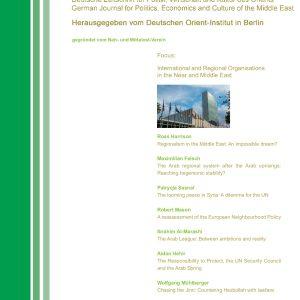Description
Now that the so-called Islamic State (IS) has been dislodged from the city of Mosul, its most prestigious urban stronghold in Iraq, the remaining Iraqi enclaves under IS control will foreseeably all soon be conquered by forces belonging to the anti-IS coalition. While IS is being downgraded to a regular insurgent organisation without quasi-sovereign control over territory, the organisation will nevertheless remain a significant threat in Iraq, Syria, and the wider region. It would be grossly oversimplifying to reduce the Iraqi crisis to a kind of eternal clash of identities between the three main ethno-religious constituencies comprising Iraqi society. Rather than juxtaposing three unified political camps, the current situation is marked by the fragmentation of supposedly homogenous ethno-sectarian political blocs into competing factions among Sunnis, Shiites, and Kurds. In order to rebuild Iraq and to prevent the comeback of IS or the future rise of a similar group among the marginalised Sunni Arab population of Iraq, the destructive logic of the ‘war on terror’ must be transcended in order to address a host of structural problems haunting the post-Saddam Iraqi state, such as the lack of effective economic and political inclusion of the Sunni Arab population into the power sharing system, the simmering conflict between the central government and the Kurdish regional government, the economic crisis and the problem of bad governance, and last but not least the meddling of competing external powers in Iraqi affairs.
Achim Rohde is a Middle East historian and scientific coordinator of the research network Re-Configurations. History, Remembrance, and Transformation Processes in the Middle East and North Africa at the Center for Near and Middle East Studies, Philipps-Universität Marburg.




Reviews
There are no reviews yet.